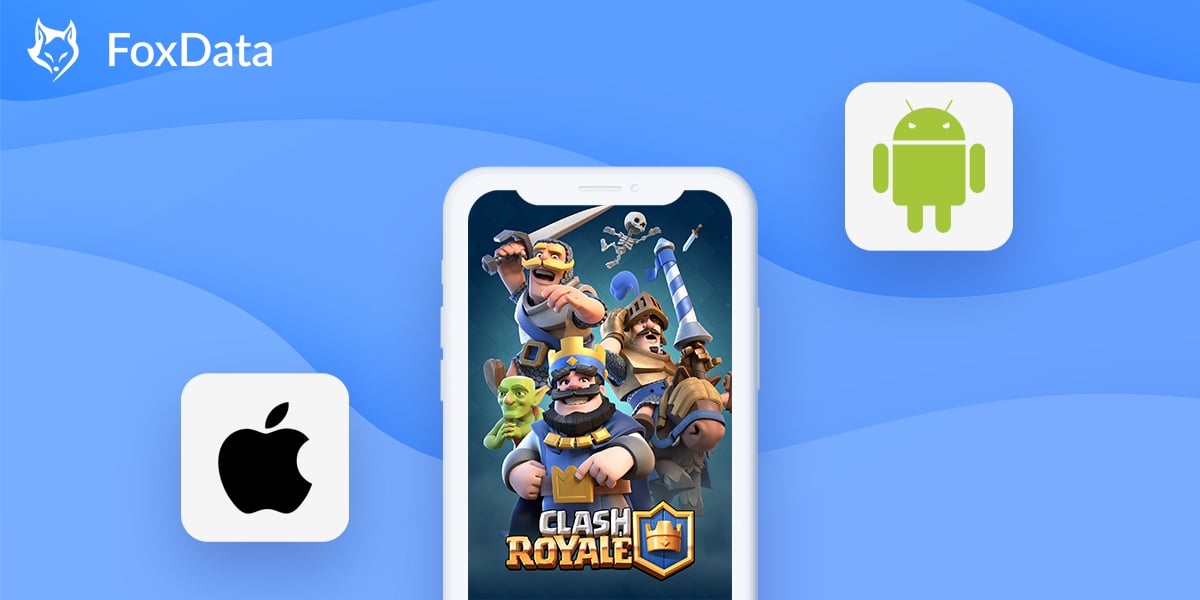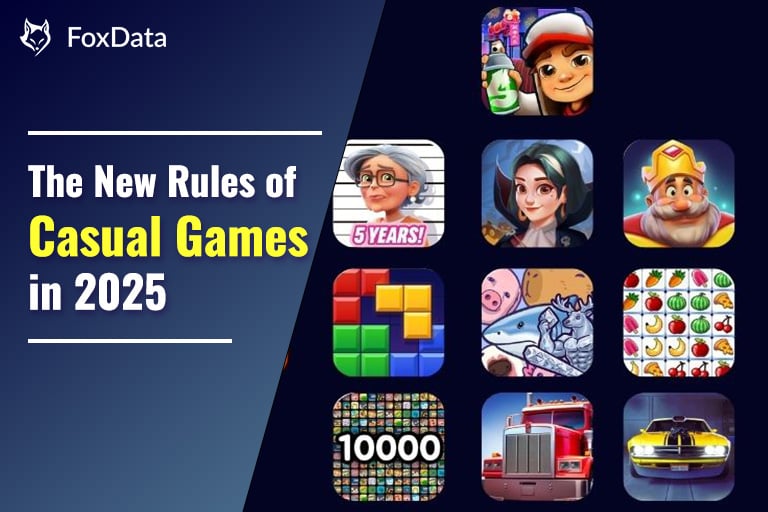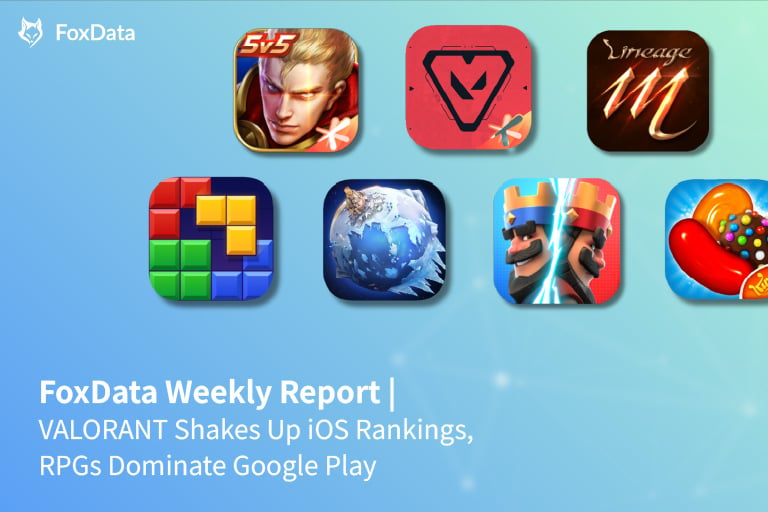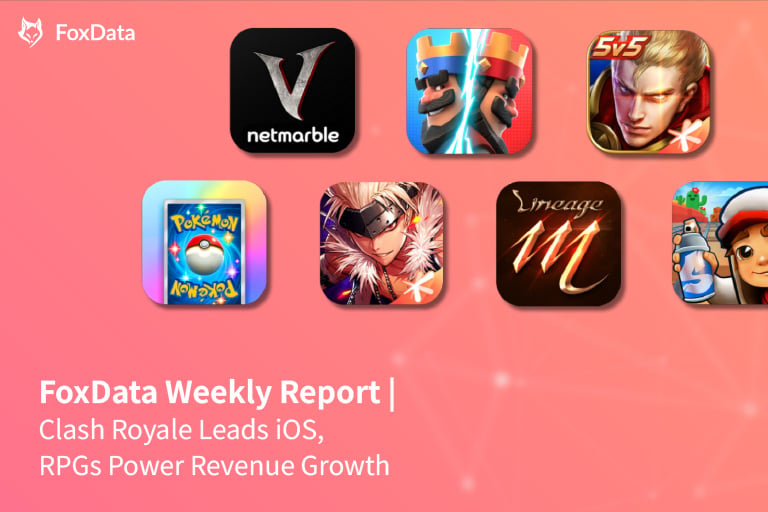Supercell's Strategic Rebound: What Clash Royale’s Revival Reveals About Building Evergreen Games

The impressive rebound in performance reflects both accumulation and reconstruction
Entering 2025, Clash of Clans: Royal Clash (hereafter referred to as Clash of Clans) has achieved a remarkable business resurgence.
According to FoxData, the game has seen continuous monthly revenue growth since the beginning of this year, with July surpassing $10 million. As of July, Clash of Clans has generated $72 million in revenue this year, setting a new high for its monthly revenue in nearly three years.
How did Clash Royale achieve a successful comeback? You shouldn't focus solely on "changes in gameplay"; instead, consider "cognitive transfer."
Clash Royale’s stunning resurgence wasn’t driven by a single feature update—it was the result of thoughtful, layered strategies designed to realign user experience and content rhythm with evolving player expectations.
First, Supercell made decisive moves to reduce gameplay friction and cognitive fatigue. By removing legacy systems like chest queues, key mechanics, and seasonal tokens, the team dismantled several structural blockers that were slowing reward access and disrupting user momentum. The core idea was simple: let players engage at their pace, with fewer artificial delays. Post-update player session data—validated by FoxData’s behavioral tracking—showed a significant reduction in drop-off rates during early-game cycles, suggesting this friction clean-up directly boosted short-term retention.
Second, they actively expanded the content landscape. The introduction of Merge Tactics, a new auto-chess inspired mode, diversified gameplay loops without breaking core mechanics. Campaigns like Goblin Queen’s Journey and high-visibility collaborations with platforms like Chess.com revealed a shift from feature-based updates to ecosystem-level enrichment. Shortly after these content drops, FoxData surfaced sharp DAU inflection points tied to the release windows—evidence that the market craved not just balance changes, but truly transformative play experiences.
Finally, Supercell adapted its rollout strategy for regional markets. Instead of mirroring global season timelines, localized live ops and culturally tailored content pacing ensured higher sustained engagement in key regions like China. From a data perspective, this shift showed up clearly in FoxData’s lifecycle cohort segmentation, where certain content spikes outperformed others depending on their geo-timing and theme resonance. What looked like “just another patch” on the surface, was often the culmination of regional behavior analysis and predictive testing.
The key to success is not simply "doing better," but "adapting cognition in a timely manner."
In early 2024, Ilkka Paananen admitted that within Supercell, there had been a long-standing misconception that "small teams reign supreme." This cognitive inertia was the fundamental reason for slowing product development and missing the rhythm of user engagement.
However, the true turning point came when he bifurcated Supercell’s management system into two parts:
- New game development teams: operating like startups, focusing on creative-driven innovation, zero-based data analysis, and agile attempts at viral hits.
- Existing game teams: equipped with large-scale growth operations, data support systems, and continuous capacity supply.
Supercell’s overall turnaround was a methodological leap—one that cannot rely solely on inspiration and intuition but depends heavily on data visualization capabilities and real-time responsiveness to user experience evolution.
There are no "long-term winners by default," only a mindset shift towards "constant self-challenge."
Historically, we said "a hit every ten years," but looking at growth cycles and strategic evolutions of titles like Clash Royale, Brawl Stars, Clash of Clans, Fantasy Westward Journey, DNF, and Sky: Children of the Light, the reality is:
- User expectations have shifted from "fun" to "growing together with the game." FoxData supports the construction and simulation of user value contributions, moving beyond mere active user metrics.
- Team innovation requires feedback loops: through user retention comparison curves, FoxData helps product teams establish a "user management middle platform."
Ultimately, games are increasingly resembling operational content platforms. Their lifecycle is no longer a linear process of creation, launch, and revenue but a dynamic system of continuously adjusting user relationships, cultural connections, and value associations.
Thinking breakthroughs are essential for products to remain evergreen; data refinement enables teams to stay coherent.
To adapt to more complex user mindsets, faster product logic, and fiercer existing market competition, Supercell chose not to "replace the team for new games" but to "transform itself," fundamentally reconstructing management philosophies. The key to seizing this inflection point lies in:
- Moving beyond traditional thinking;
- Possessing data tools capable of recording, attributing, and dissecting new actions;
- Developing a strategic content and operations portfolio centered on "maximizing user value."
FoxData offers more than charts and metrics; it helps product teams understand genuine user needs, avoid operational blind spots and illusions, and ensure that "changes in thinking lead to positive performance feedback."
"evergreen games" are never a matter of luck but the result of a meticulous, systemic innovation spanning cognition, organization, and rhythm.
The true factor influencing a game’s potential is not just gameplay design but the team’s sharpness and actionability regarding strategy, rhythm, culture, and mechanisms.
Supercell has achieved extreme transformation, and every team aiming to survive, leap, and lead in the same environment should consider:
- Can you use data not just to understand the past but to forecast the future?
- Can you redefine what truly constitutes growth? Choosing the right tools is essential to cultivating a new intuition for users and products.






